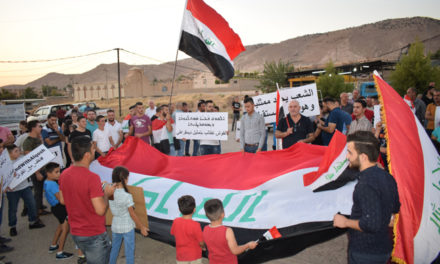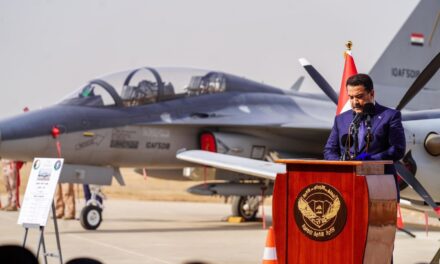On 22 January, the Iraqi national football team beat its archrival, Iran, in a thrilling game worthy of being called the mother of all matches. The Iraqi team beat its Iranian counterpart after a dramatic 120 minutes of play, and a nerve-wrecking penalty shootout to clinch a spot in the Asian Cup semi-final in Sydney. The result unleashed spontaneous celebrations in all parts of the country.
The win was reminiscent of the Iraq’s 2007 victory against Saudi Arabia in the Asian cup final because of the magnitude of emotions it engendered. When Iraq won the Asian title seven years ago, Iraqis understood the symbolism of their victory. It was a reminder of what a united Iraq can do. The celebrations that took place after were a testament to Iraqis’ sense of camaraderie. It felt natural for Sunnis in Anbar, Shia in Baghdad, and Kurds in Sulimaniya to run to the streets and celebrate as countrymen despite being in the middle of a civil war.
The success of the national team stands as an example of the unity Iraq desperately needs from its political leadership. What the national team did was, essentially, what Iraqi politicians failed to do over the years, which is to unite the country. Iraqis rallied behind their team not only because it was successful, but also because of what made it successful. The team won because its players were able to rise above their ethnic and sectarian differences for the sake of a greater national good. Iraq expert and historian Reidar Visser believes that the Iraqi football team is successful because it puts together the nation’s best talents regardless of their ethnic and sectarian backgrounds. He adds:
Careful investigations based on a Paul Bremer paradigm for understanding Iraq would show that the number of Shiites in the team is disproportionately high compared with the national demographics and there are too few Kurds and Sunni Arabs. But the bigger point is this: No one cares.
With one-third of the country lost to the “Islamic State,” two million of its population internally displaced, and its leaders bitterly divided, Iraq, as a nation, is in no better shape than it was in 2007. Nevertheless, when Iraq beat Iran on Thursday, it seemed as if Shi’i Iraqis didn’t care that a Sunni is their team captain, nor did Sunni Arabs care that a Shi’i Kurd scored Iraq’s first goal. Every Iraqi felt a sense of attachment to one team that represented them as compatriots.
The national football team’s ability to unite Iraqis is unparalleled. With tens of thousands of people parading its streets carrying Iraqi flags, Baghdad was transformed into a different city altogether after the Iran game. Euphoric fans were on every corner of Baghdad. Meanwhile in Tikrit, the Ubaid tribe clashed with Islamic State fighters because they refused to let Ubaidi tribesmen celebrate the national team’s victory. In Qadisiyah, people demanded that a statue is built for Iraq captain Younis Mahmoud after he scored a header. Even in Mosul, Iraqis watched the game like their fellow citizens, but celebrated modestly to avoid being punished by IS police. Where else in the world would fans risk being beaten just to watch their national team play? It’s more than just football.
No occasion, religious or secular, could bring Iraqis of all backgrounds together like when the national wins. Football is more than entertainment for Iraqis; it’s a medium that brings out the best in them.










